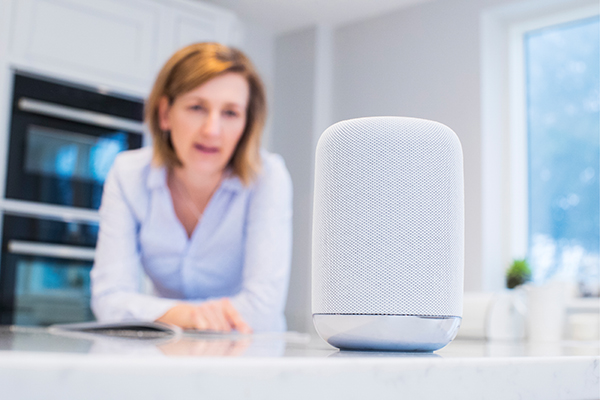
The USC Center for Body Computing (CBC) at Keck Medicine of USC is hoping to solve unmet health care needs using home-based digital assistants at its 2018 “Voice Assistants for All” hackathon on July 12–13, 2018. Teams of innovators will be challenged with creating solutions that will enable people with developmental disabilities, as well as seniors and veterans, to have more control over their health care. The overnight event will conclude with team presentations and judging by experts in the fields of computer science, creative arts, medicine, science and engineering. The winning team will receive $10,000 and an opportunity to collaborate with the CBC and industry leaders to bring their idea to life.
“This is an opportunity to find technology-based solutions that can empower people who are underserved by mainstream health care,” says Leslie Saxon, MD, executive director of the CBC and professor of medicine (clinical scholar) at the Keck School of Medicine of USC. “Emerging artificial intelligence voice assistants like Google Home and Amazon Echo might help us bridge that gap.”
This year’s hackathon, cohosted with the WITH Foundation, will require participants to use voice assistants to foster deeper connections, encourage informed health care decision-making and identify gaps in care. The intent is to encourage solutions that make sure patients are involved in decision-making regarding their care and that their expectations for their health care and health care needs are known and met.
“WITH is excited about our partnership with the USC Center for Body Computing,” says Ryan Easterly, executive director of the WITH Foundation. “We look forward to seeing the ways that participants engage the use of voice assistants as an effective health care tool.”
Voice assistants can serve as an effective health care tool by providing medical information, helping with schedules and keeping records of interactions, Saxon explains.
“Digital technology is especially helpful, because much of health care still exists outside of a doctor’s visit. It provides an opportunity to share tools and information directly to people within their own homes,” she says. “Research has also shown that virtual humans can increase the willingness of people to disclose information by decreasing fears of evaluation and judgment.”
The hackathon will take place at the USC Institute for Creative Technologies in Playa Vista, CA. For more information about the hackathon, visit uscbodycomputing.org/va-hackathon.
– Erica Rheinschild